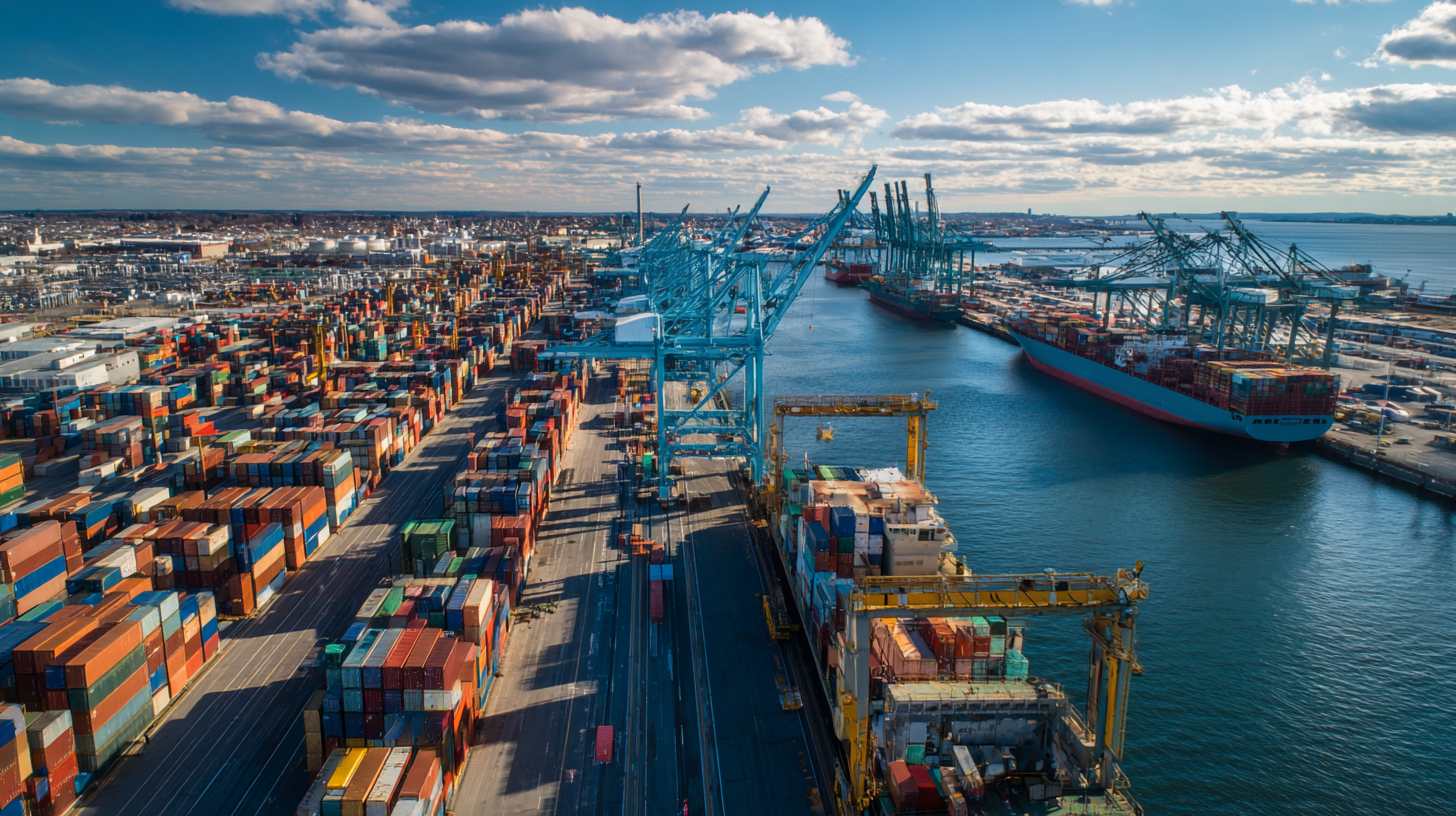Navigating Import Export Certifications for the Leading Battery Manufacturers
 In the rapidly evolving landscape of battery manufacturers, navigating the intricate web of import and export certifications has become essential for businesses aiming to thrive in the global market. As the demand for advanced battery technologies continues to surge, ensuring compliance with international standards and regulations is crucial for maintaining quality and competitiveness. This blog will guide you through the fundamental steps to identify high-quality suppliers while emphasizing the importance of understanding the certification requirements that govern the industry. By equipping yourself with the right knowledge and resources, you can make informed decisions that not only enhance your supply chain but also foster partnerships with reputable battery manufacturers, ultimately driving innovation and growth in your business.
In the rapidly evolving landscape of battery manufacturers, navigating the intricate web of import and export certifications has become essential for businesses aiming to thrive in the global market. As the demand for advanced battery technologies continues to surge, ensuring compliance with international standards and regulations is crucial for maintaining quality and competitiveness. This blog will guide you through the fundamental steps to identify high-quality suppliers while emphasizing the importance of understanding the certification requirements that govern the industry. By equipping yourself with the right knowledge and resources, you can make informed decisions that not only enhance your supply chain but also foster partnerships with reputable battery manufacturers, ultimately driving innovation and growth in your business.
Understanding Import Export Certifications: A Key for Battery Manufacturers
Understanding import export certifications is crucial for battery manufacturers looking to thrive in the global market. These certifications not only ensure compliance with national and international regulations but also enhance product credibility. Navigating the complex landscape of certifications can be daunting, but familiarizing oneself with the relevant standards is a key step toward successful market entry.
Tips for battery manufacturers include staying up-to-date with the latest regulatory changes and leveraging resources from industry associations. Regular training for compliance teams can also enhance understanding and implementation of certification processes.
Furthermore, establishing strong relationships with certified testing laboratories will streamline the testing and certification process, ultimately reducing time to market.
It's essential for manufacturers to carefully document all processes related to certifications, as this can significantly streamline audits and inspections. Investing in robust quality management systems will not only aid in achieving certifications but will also ensure continuous improvement in manufacturing practices, establishing a competitive edge in the market.
Essential Certifications Required for Global Battery Trade
Navigating the global battery trade requires an understanding of essential certifications that ensure safety and compliance. Recent developments highlight the increasing importance of certifications such as the IATA CEIV Lithium Battery certification, which enhances the safe transport of lithium batteries. With the growing market for electric vehicles and renewable energy solutions, manufacturers must comply with international guidelines to facilitate smooth cross-border operations. Reports show that certified logistics services are crucial for mitigating risks associated with lithium-ion battery shipping, given the unique challenges these products present.
Tips: Always verify the certifications of your logistics partners to ensure they meet global safety standards. Additionally, familiarize yourself with specific certification requirements based on the regions where you trade, as regulations can vary significantly.
As sustainable practices gain traction, initiatives such as urban mining of end-of-life batteries are emerging, enhancing the circular economy. Ensuring that batteries are recycled responsibly not only meets regulatory standards but also supports environmental goals. For battery manufacturers, understanding these evolving regulations and certifications is paramount to maintaining market competitiveness and ensuring public safety.

Step-by-Step Guide to Navigating Certification Processes
Navigating the certification processes for importing and exporting batteries can be daunting for manufacturers. This step-by-step guide is designed to simplify the complexities involved, ensuring that businesses can effectively meet regulatory requirements and maintain competitive edge. First and foremost, understanding the specific certifications required in different countries is crucial. Each nation has its own set of regulations, and compliance is vital not only for legal operations but also for building trust with international partners.

Next, manufacturers should focus on streamlining their documentation and processes. Establishing a clear protocol for collecting and submitting required paperwork can prevent delays and reduce the risk of compliance failures. Engaging industry experts or consultants can also provide valuable insights into best practices and emerging trends within the certification landscape. By following these steps and continuously adapting to new regulations, battery manufacturers can navigate the import-export certification maze with confidence.
Common Challenges in Securing Battery Export Certifications
The export certification landscape for battery manufacturers is fraught with challenges that can impede international trade. According to a report by the International Energy Agency (IEA), the global battery market is projected to reach $100 billion by 2025, highlighting the urgent need for efficient compliance with export regulations.
Navigating these procedures can be particularly daunting for manufacturers, given the diverse regulatory frameworks across different countries. Common obstacles include variations in safety standards, environmental regulations, and the ever-evolving landscape of lithium-ion battery specifications.
Moreover, the complexity of documentation and the lengthy approval processes can hinder manufacturers' ability to capitalize on market opportunities. A recent study by the Battery Innovation Center indicated that nearly 40% of battery exporters face delays due to insufficient certification knowledge.
This situation is exacerbated by the increasing scrutiny on sustainability practices, making it imperative for manufacturers to obtain comprehensive certifications that reflect their commitment to environmental responsibility. Consequently, staying updated on changing regulations and investing in certification expertise is essential for leading battery manufacturers seeking to streamline their export processes.
Best Practices for Staying Compliant in the Battery Industry
In the rapidly evolving battery industry, compliance with import-export certifications is crucial for manufacturers aiming to thrive in the global market. According to a report by the International Energy Agency (IEA), lithium-ion battery demand is projected to surge to 2,000 GWh by 2030, driven by the electric vehicle (EV) boom. This escalating demand underscores the importance of adhering to regulations and certifications, as non-compliance can result in significant delays, financial penalties, and a tarnished reputation.
Best practices in managing compliance include staying updated with international regulations such as REACH and RoHS, which not only impact product safety but also affect market access. A study from Deloitte indicates that companies investing in compliance systems can see up to a 25% reduction in operational risks. By implementing a robust compliance framework, battery manufacturers can streamline their trading processes and minimize cross-border complexities, ultimately securing a competitive edge in this high-stakes industry.
Navigating Import Export Certifications for the Leading Battery Manufacturers - Best Practices for Staying Compliant in the Battery Industry
| Certification Type | Issuing Authority | Compliance Requirements | Renewal Frequency | Average Processing Time |
|---|---|---|---|---|
| ISO 9001 | International Organization for Standardization | Quality management system compliance | 3 years | 2-6 months |
| CE Marking | European Union | Product safety and performance | Indefinite (subject to compliance) | 1-3 months |
| UN38.3 | United Nations | Lithium battery transportation testing | As needed | 1-4 weeks |
| IEC 62133 | International Electrotechnical Commission | Safety requirements for rechargeable batteries | 3 years | 6-12 weeks |
